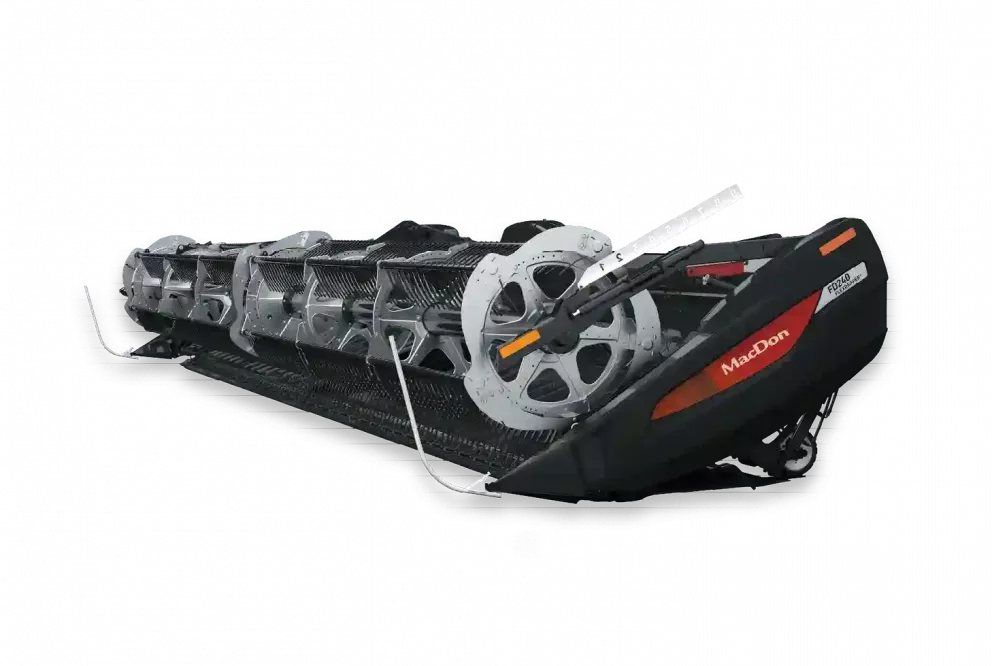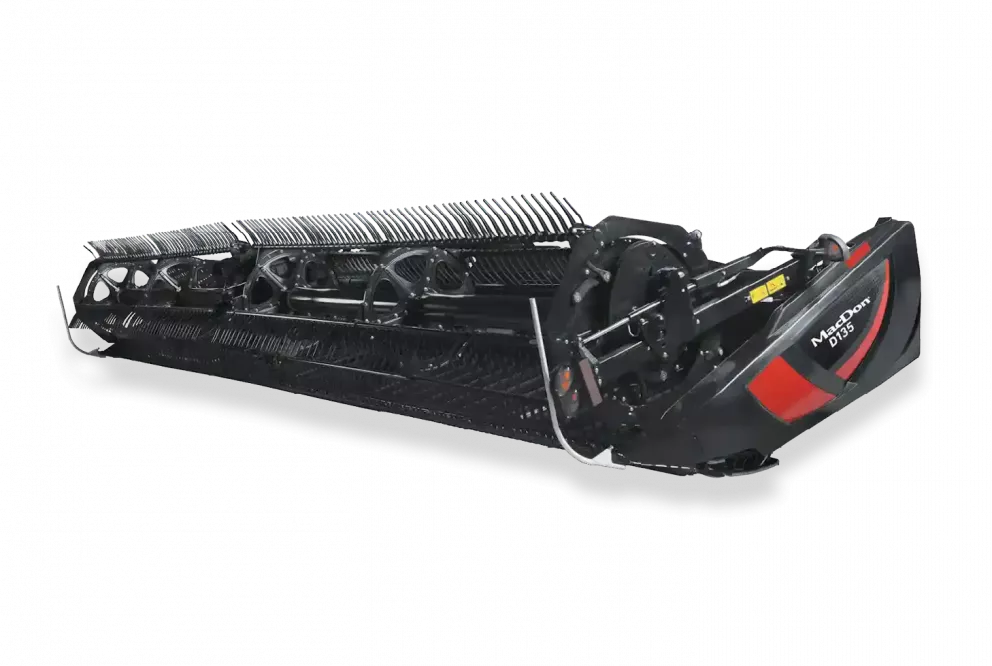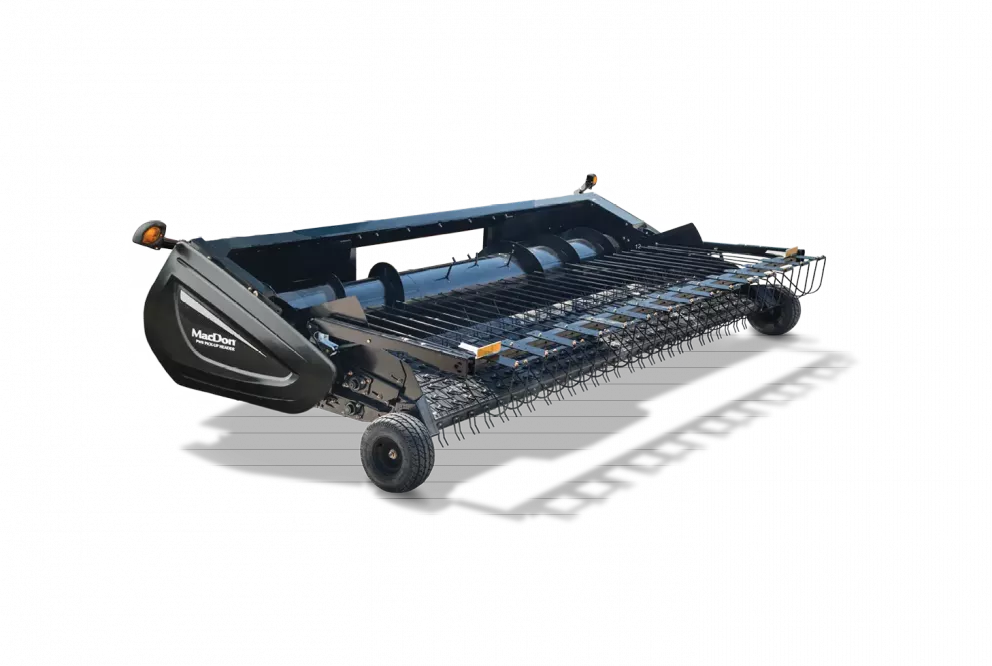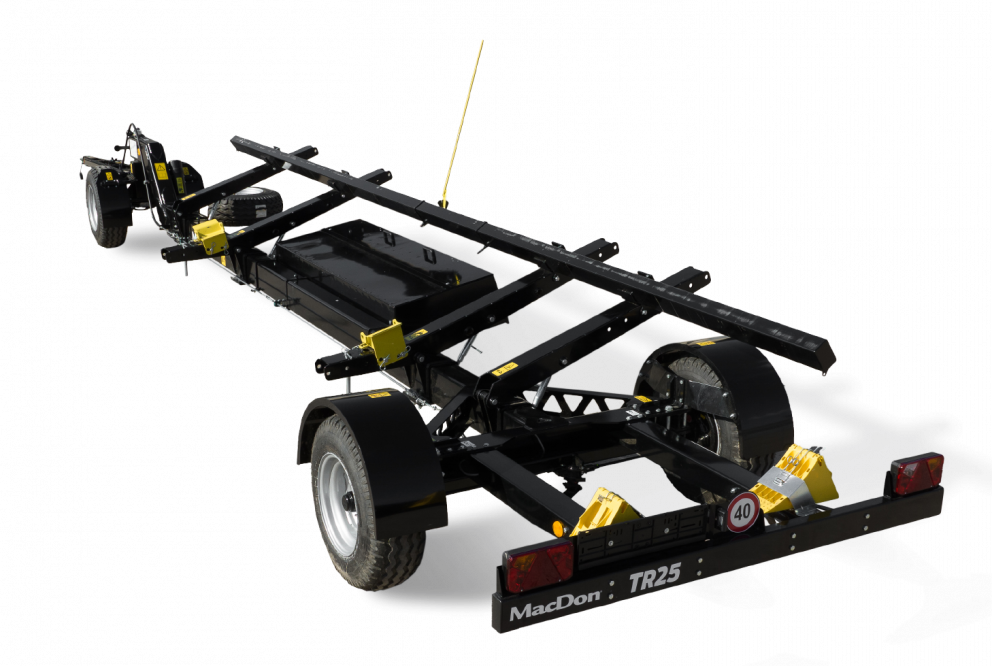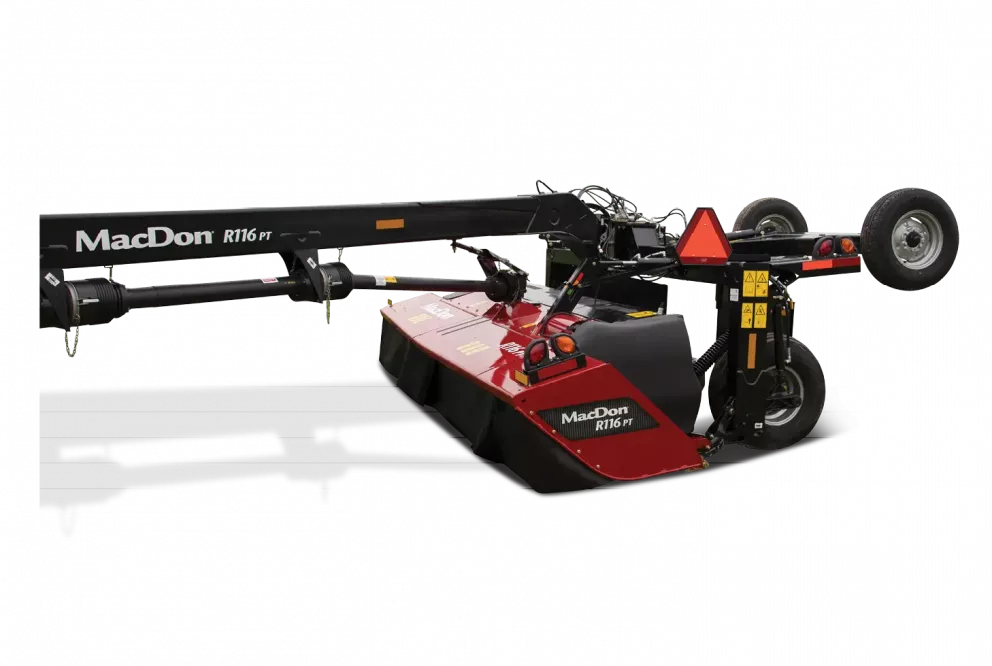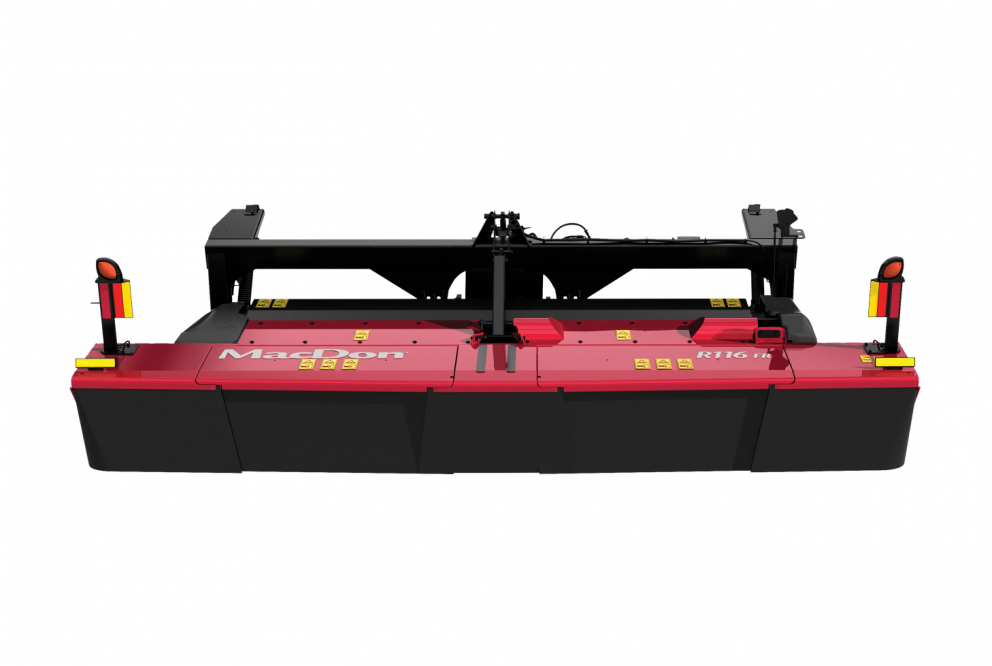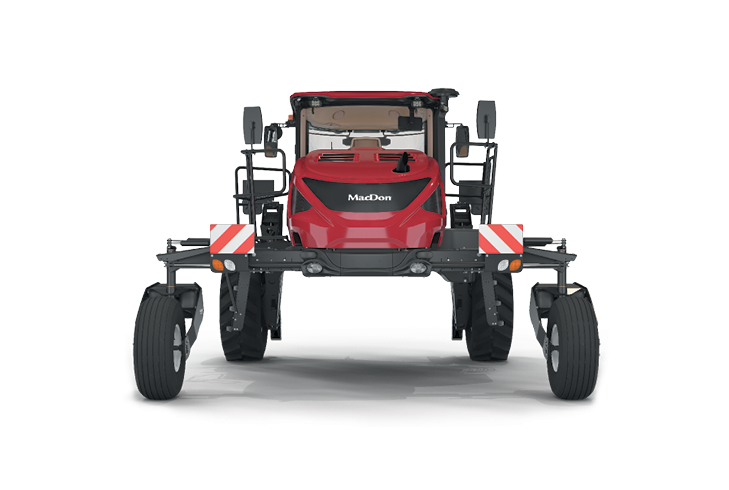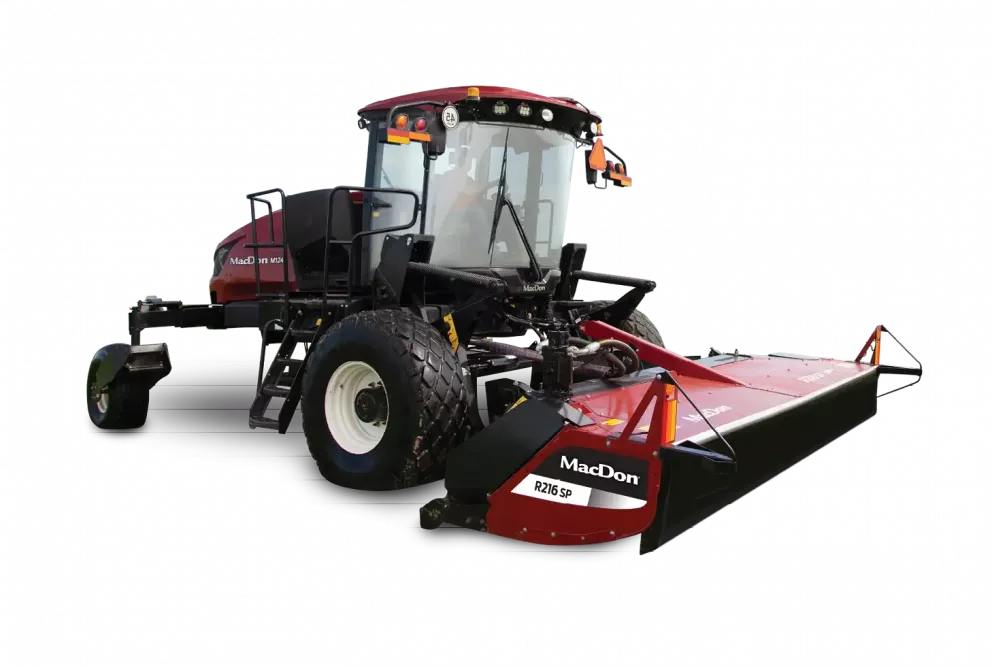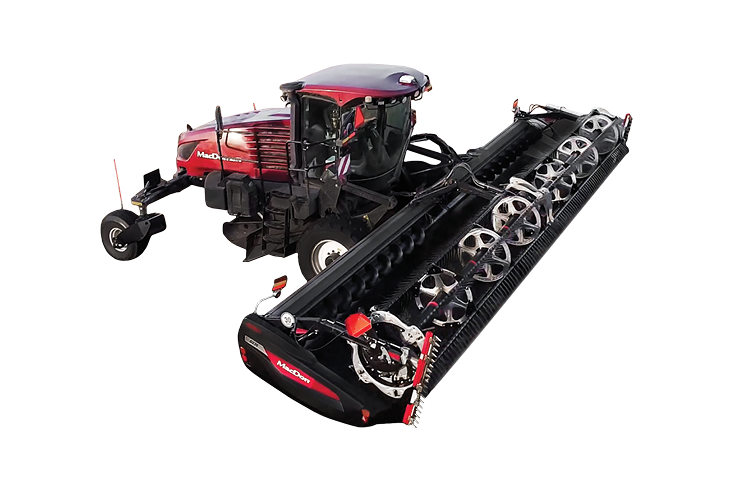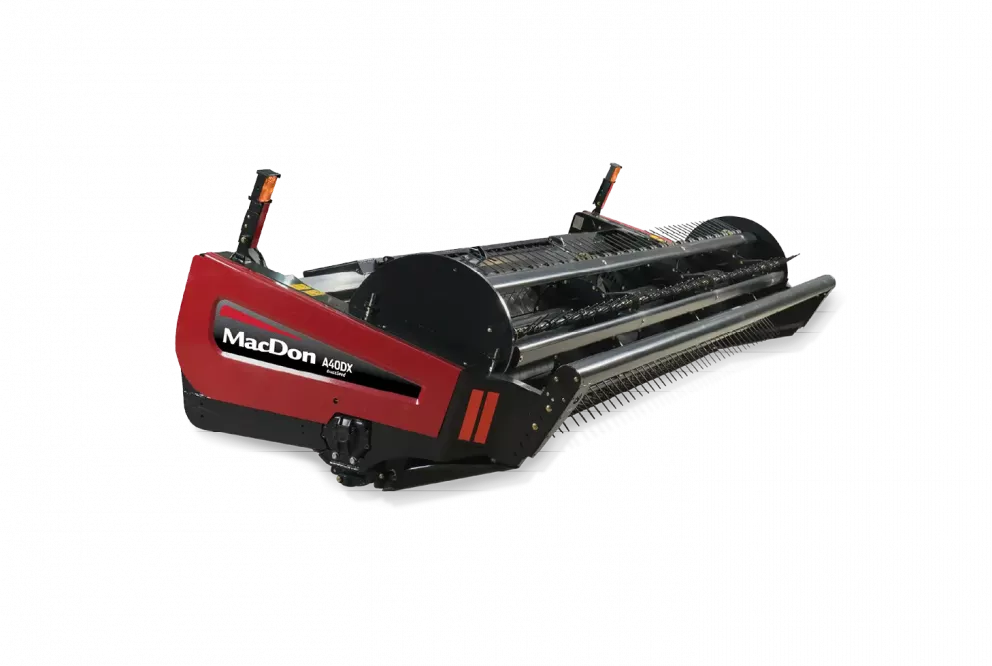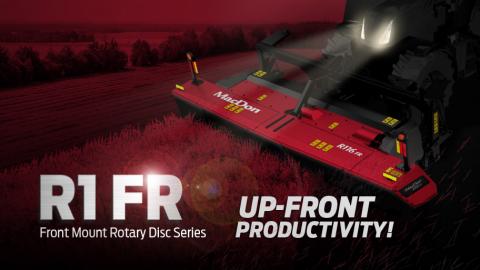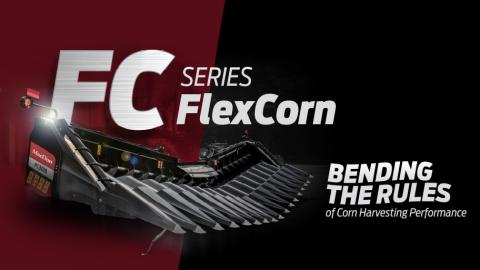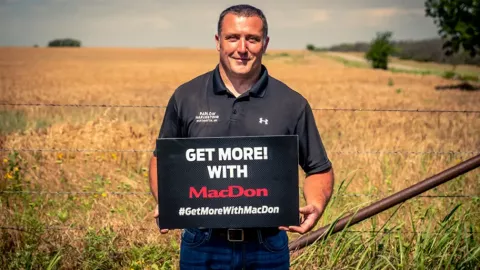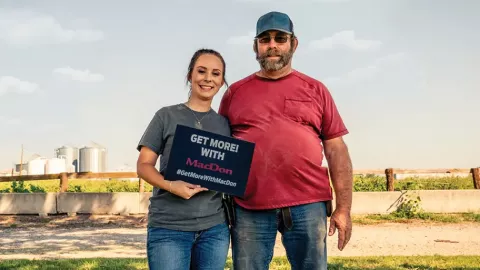Keep ‘em Running!
Despite COVID-19, the harvest clock kept ticking, so MacDon’s US custom harvest support team was there to help keep things running smoothly.
Despite COVID-19, the harvest clock kept ticking, so MacDon’s US custom harvest support team was there to help keep things running smoothly.
Events moved swiftly after the World Health Organization declared a global pandemic on March 11th, 2020. Within hours, the US restricted travel to 26 European countries, and just 10 days later the US/Canada border was shut to non-essential travel. Instantly, companies across North America that do business internationally found themselves scrambling for work-arounds.
Caught looking for a Plan B was Tanner Fontaine, MacDon’s coordinator for its US Custom Harvest Support Team usually staffed by university students.
“In a normal year we typically hire Canadian students as it makes it easier to train everyone in Winnipeg where all our equipment is. This year, that was not going to be possible because we couldn’t get them into the US.”
With the clock ticking, Fontaine rushed to get his job postings out to a handful of US universities where he had some leads. He had to get a new team hired and trained before the custom run started in northern Texas around the middle of May.
“It was pretty crammed, especially because I wasn’t able to cross the border myself. We had to do our training out of our Kansas City office using distance learning as much as we could, but then accelerated that portion so that we could get them into the field as quickly as possible because that was probably the best way for them to learn the hands-on stuff.”
To ensure service quality wasn’t compromised by the rushed training, it was decided to partner the student hires with experienced MacDon veterans.
“This year we went with a combination of student hires supported by a rotation of our full-time product support representatives. These guys have been around up to 15 or more years with the company, so they brought a lot of knowledge and skills with them.”
In addition to staffing the seven person team, Fontaine was also tasked with locating a replacement for himself as he would not be able to cross the border to handle field coordination responsibilities for the run. Luckily, MacDon had Jon Redford in the wings eager to pick up the baton.
“Going on the custom run was always one of those unique experiences that I would like to do, so when they said they had a need for a replacement field coordinator I was definitely up for the opportunity,” says Redford.
Redford, who was first hired by MacDon back in 2016 as a product support rep for the territories of California, Arizona and Nevada, originally hails from Washington State where he had previously worked as a GPS specialist for a dealership. Now, as MacDon’s new custom harvest field coordinator for the 2020 harvest, he found himself responsible for managing the team’s two parts trailers, as well as the deployment of its four service trucks and four service pickups.
“Our parts trailers function almost like a mobile dealership. We have a 48’ trailer that’s filled with parts and has an office in there as well, and then we have a smaller 25’ cargo trailer that got converted into a parts trailer and office. Together they hold about 90% of the parts that we would ever need, while our service trucks are fully equipped with all of the tools and testing equipment we require to do anything on a header. We can do everything from rebuilding a drum to repairing an adapter frame or anything on the header itself with the parts we have on hand.”
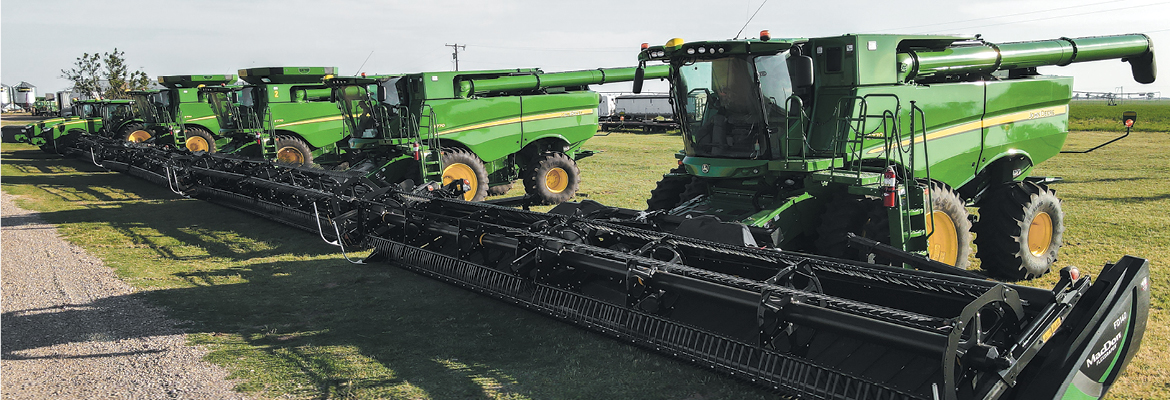
From the start of the run in Texas to its conclusion in the Dakotas in mid September, Redford says that he found his work managing the team both exciting and satisfying.
“We were kept really busy most of the days. At the start of the season we were mostly called out to do walk-arounds of customers' equipment to see if anything might need to be fixed, as well as make sure that everything was set up properly. However, once on the run the days could be long, usually starting around 7:00am and going as late as 10:00 or 11:00pm at night if needed.”
According to Redford, the Harvest Support Team’s primary mandate is to keep their customers running.
“If the callout was a downed or completely stopped machine we would definitely commit to getting out there the same day. It didn’t matter how long it took or what time it was, we knew we had to get that machine going because the customer’s business depended on it.”
Redford’s strategy was to make sure that whenever a truck went out on a call that it was fully equipped for any eventuality, as the last thing he wanted was someone having to return to the trailer for a part they didn’t have. That would only cost the customer time.
“In responding to any call, I always encouraged the guys to go out as soon as possible. Our response time was almost always within an hour, as long as all our crews weren't already taken up on other jobs. In the rare instance we couldn't respond immediately to a request, we always let the customer know how long it would likely take to get to them.”
Surprisingly, Redford says that the extra precautions the team had to take this year dealing with Covid-19 had no effect on the service they were able to provide.
“I didn’t see the virus compromising us in any way. It did add more precautions as far as sanitizing, masks and social distancing, but as far as getting out there to help our customers, it didn’t stop us. All of our guys took the precautions in stride and nobody complained about it even though it was harder working on machines with the masks on, especially when it was 110 degrees Fahrenheit out.
Redford says that the only time they were allowed to break protocol and remove the mask was if they found themselves working on a header with no one around.
“Overall, we definitely tried to stay safe, not only for ourselves but also our customers. We didn’t want to have any health issues or hospital runs.”
As a first year member of the team, Redford says that one of the things that impressed him was the quality of the parts support they received from both MacDon’s Kansas City office and from the main plant in Winnipeg.
IF WE WERE EVER SHORT OF ANYTHING WE ALWAYS HAD PARTS THE NEXT DAY.
In fact I have to give a huge shout out to Karl Brooks in our Kansas City office. Whenever I needed a part, even if it was past the order deadline for the day, he would get it out to UPS for us, even if he had to drive it to the plane himself. That was all part of what we did to make sure that our customers could reduce their down time and keep going.”
An even bigger surprise for Redford was that MacDon serviced all its customers on the run for only the cost of parts, which are sold through local MacDon dealer where the trailer is set-up at.
“We never charged a service fee. Coming from a dealership background where the customer was charged $125 an hour to work on a machine, and then seeing everything that we were doing for no charge, well I found that really amazing.”
Back in Winnipeg, Fontaine says that the job MacDon’s Harvest Support Team did in 2020 will go down as one of its best efforts. According to his records, over the four months of the run, the team had a total of 650 service calls helping more than 100 customers, while the team’s four service trucks logged more than 64,000 miles, roughly the equivalent of driving 2 ½ times around the earth.
“Our service was perhaps even better this year than in previous years because we utilized our product support reps. They were especially valuable for training our new guys, and keeping things moving pretty well. There was definitely a lot of extra planning that had to go into it, but it all paid off in the end.”
